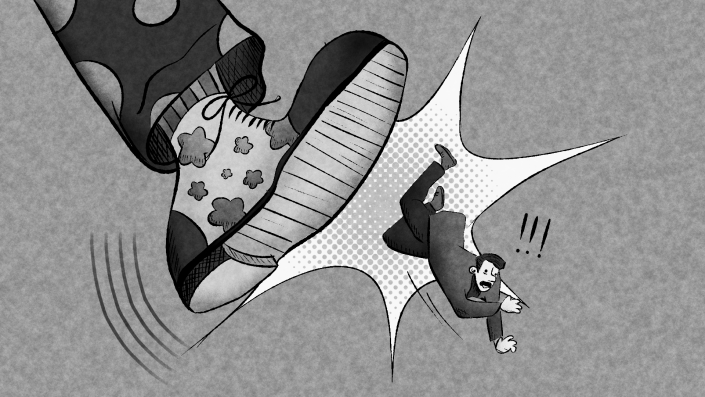For centuries, society was forced to operate on mechanisms that we now call unequal—that the world really is not fair, and that some people simply deserved more than others. Women, the LGBTQ+ community, people of color, and those born with less or became impoverished were constantly marginalized, shunned away from their communities, and denied the same rights afforded to others. Over time, however, the truth began to unravel. Minorities have clamored for their rights such as suffrage and equal wages and have stepped up to take more space in society.
Despite this progress, various forms of discrimination persist—from racism, homophobia, to ableism, which are often disguised as jokes. When challenged, enthusiasts of such often react dismissively, watering down any form of criticism as just being overly sensitive. The youth, in particular, has been labeled the “snowflake generation” for not being able to laugh at the same decades-old jokes people used to laugh at.

But what these people fail to realize is that we still can take jokes; we just can no longer tolerate microaggressions. While humor can be subjective, clear lines have been drawn, and they should be recognized: if it belittles, excludes, or harms, it is not acceptable. Laughter should never come at the expense of someone else’s dignity.
These jokes that some may perceive as harmless jests can have significant, unexpected consequences. In a Senate subcommittee hearing in 2023, Sen. Sherwin Gatchalian reported that the Philippines—in a “glaring” disparity—ranks first out of 70 countries when it comes to bullying in schools, with about 65 percent of students being victims due to their physical appearance, status in life, and skin color. The Department of Education also reported prior an uptick in suicide among schoolchildren, some being induced by violence and emotional abuse in schools.
What might seem like innocent banter might cause or evoke memories of distress. What may just be fun for us might be someone else’s final straw.
Treading the line between comedy and outright insensitivity might be an inconvenience for others, but it is a necessary move toward a more forward-thinking society. Jokes bear weight, and not being cautious of how we construct and deliver them could be more negative than uplifting to others. The publication, for one, is no stranger to missing this mark.
This time last year, on April Fools’ Day, we became fools ourselves. Our spoof article on mandatory ROTC was an attempt at satire—to poke fun at the ridiculous bill through parody. But instead of eliciting laughter, it stirred up a storm of backlash. It was a somber realization for us: in a society where headlines are absurd enough to resemble humor and satire, we must wield our pens with greater responsibility and become more active agents of reality.
Our intention was never to mislead or offend, yet we failed to handle mandatory ROTC, among other topics we decided to mock, with more tact and sensitivity. The important messages and social commentary that could have been properly communicated were buried under a huge pile of punchlines. Words, even in jest, should respect the gravity of the issues at hand and never disservice those directly affected. Making mere jokes out of real-world problems without being mindful enough of the messages we convey do not serve the people met with these realities any justice.
And while words may be a powerful tool in our society, so does concrete action. Outside of spoof, The LaSallian upholds issue-oriented critical thinking. With constant reportage of realities through on-the-ground coverages, in-depth articles, and multimedia works, we aim to be the Lasallian community’s and the public’s looking glass to a multifaceted society. We seek to commit to journalistic excellence by constantly addressing current issues seriously, meticulously, and with great sensitivity, from content curation to information dissemination, be it in usual circulations or spoof releases.
As we persevere to strive for a more equitable society and to fully eradicate oppression, the last thing we need are free passes to perpetuate stereotypes or cause harm. Intentions speak volumes, but it is the impact that reverberates the loudest. Indeed, jokes must be half-meant. Before they escape our lips, we should subject them to rigorous scrutiny, mindful of the weight they carry.
This article was published in The LaSallian‘s Spoof 2024 issue. To read more, visit bit.ly/TLSSpoof2024.
